
- How about winning a flight ticket worth up to US$500?
- Become a member by January 31st and get a chance to win!
Travelers who plan to visit Central America often wonder: is Nicaragua safe? Get essential tips for a secure, unforgettable adventure.
8min
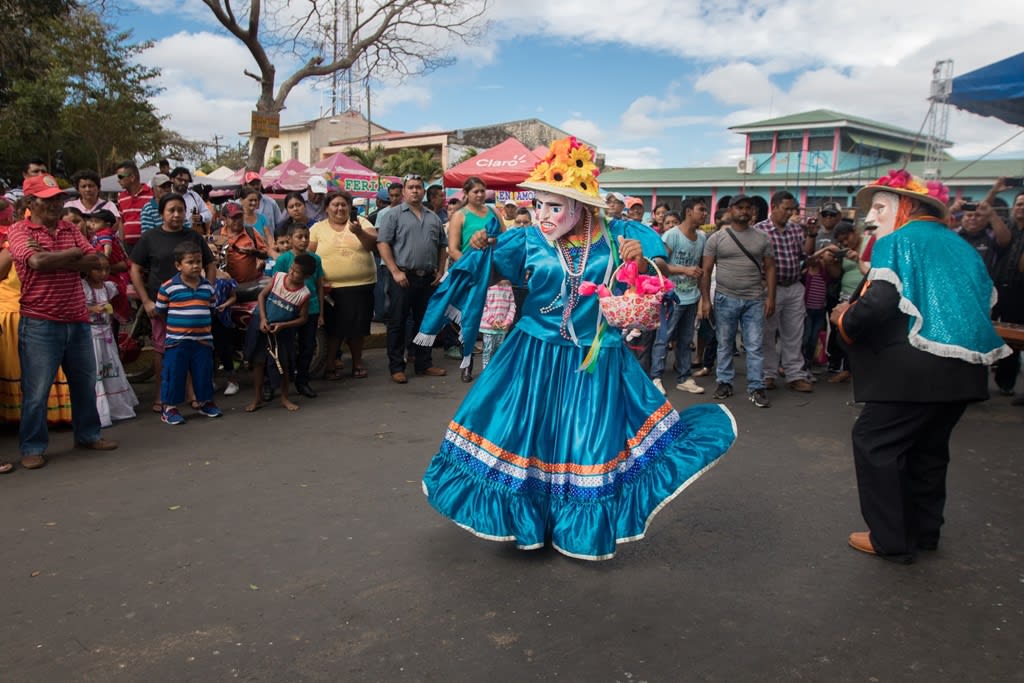
Think Nicaragua, and your mind might dart to a land of rumbling volcanoes, lush rainforests, and beaches that stretch for miles. Yet when planning a trip here, the big question often looms: Is Nicaragua safe to travel? Let's cut through the noise.
Whispers of Nicaragua's charm have turned into full-blown conversations among travelers, painting pictures of untamed volcanoes and streets lined with colonial heritage. It’s where the adventurous at heart find solace in cloud-kissed mountains while beachcombers bask on sands that remain untouched by the rush hour of tourism.
The country's natural allure is undeniable. Volcanic adventures beckon those looking for thrills; whether it’s sledding down Cerro Negro's ash-covered slopes or gazing over Masaya Volcano’s bubbling lava at night—nature here doesn’t whisper its presence, it roars.
A visit to Leon offers another slice of Nicaraguan life where artistry and revolution intertwine; murals tell stories more vivid than any textbook could hope to capture about this nation’s resilient spirit.
Think of Nicaragua not just as a destination but an experience waiting to unfurl.
But this article is not about what to do in Nicaragua, so let's delve into what concern us now: safety in Nicaragua...
If planning a trip to other Central American countries, you might also want to read: Is it safe to travel to Guatemala? and Best Central America countries to visit.
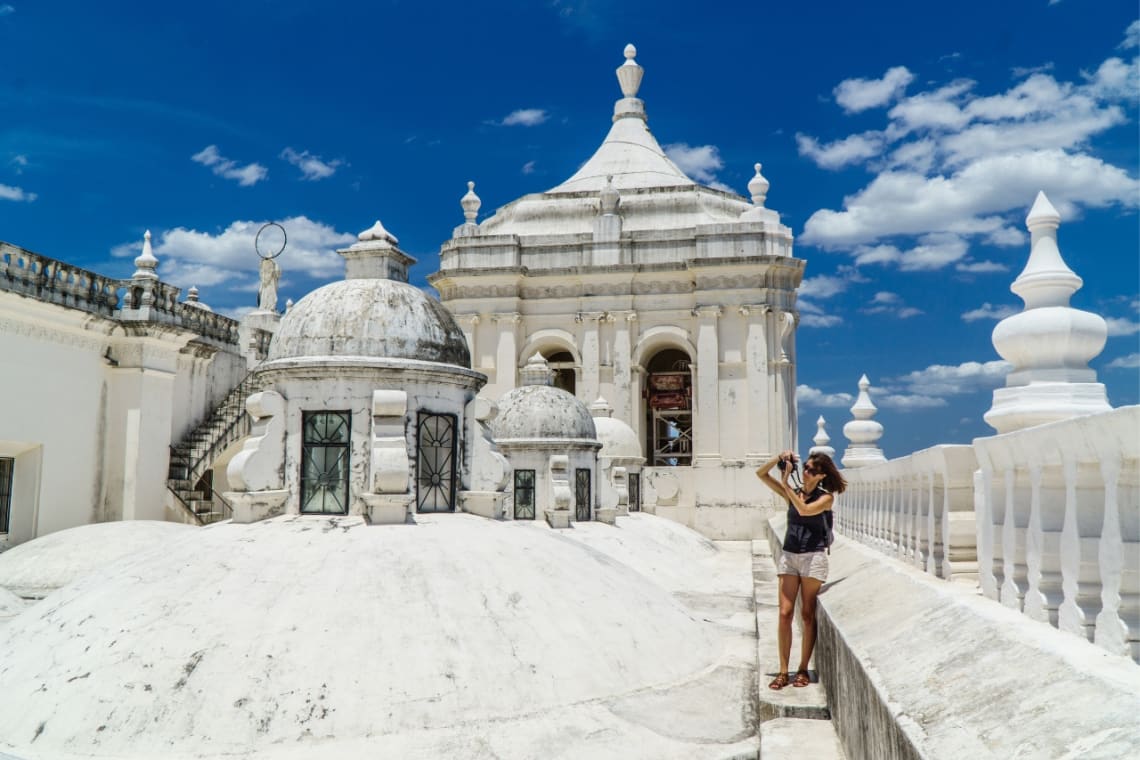
We can't chat about travel without tipping our hats towards safety—and yes, questions linger around this topic when considering Nicaragua. But let me clear the air: while no place on Earth is immune from risks, smart travel safety decisions go a long way here.
First off, there's an undeniable statement: Nicaragua is one of the safest Central American countries to visit. But this doesn't make it Japan or Switzerland—nop, we're not talking about one of the world's safest countries here.
If dipping toes into unknown waters makes you hesitant, don't worry. Even experienced travelers sometimes feel this way before starting a new adventure. But they take comfort in knowing that there are friendly faces and valuable advice from others who have already explored these routes.
The U.S. Department of State does advice travelers to exercise increased caution due primarily to crime; meanwhile, across the pond, the UK Foreign Office echoes this sentiment but also acknowledges areas of lower risk. While these official travel advisories are often a bit exaggerated to be covered against possible problems that travelers may have, is a reality that crime do exist in Nicaragua, but not as it's often portrayed in sensationalist media.
Nicaraguan culture is like a warm embrace from an old friend—it’s inviting and sincere. Hospitality isn't just a courtesy here; it's woven into their way of life. Sure, there are spots where you'd want to keep your wits about you—big cities at night or isolated areas—but that's just common sense talking wherever on globe-trotting adventures take you.
In summary, Nicaragua is a country where certain security precautions need to be taken, especially for women traveling alone. However, this shouldn't be a reason not to visit the country if you truly want to. Nicaragua is not a place at war or overrun by drug cartels. Unfortunately, the news we usually receive from Central America can lead us to believe otherwise, but there's nothing better than talking to other travelers to get an insight about the true experience.
Suggested reading: Traveling to Central America: a guide to money-saving, safety and more.

Safety isn't just luck; it's also a skill—and I'm going to give you some tips for your days in Nicaragua. Whether you're marveling at Granada's colonial architecture or surfing in San Juan del Sur, knowing how to move confidently and safely can turn your trip from good to great.
In Nicaragua, blending in isn't just about cultural immersion—it’s also smart safety practice. Ditch flashy jewelry and designer gear for more modest attire. You'll not only fit in better with the local scene but also avoid drawing unwanted attention that screams 'tourist'.
Think lightweight clothing that keeps you cool under the Central American sun while respecting local norms—loose-fitting linen shirts and comfortable walking shoes are your best bet.
Your backpack shouldn’t be an open invitation for pickpockets. Opt for bags with hidden compartments or locks, keeping them in front as you navigate crowded markets or bustling bus stations. If staying at hostels or guesthouses, use safes if available; they’re there for a reason.
A neat trick? Use carabiners to secure zippers together—it’s simple yet effective against opportunistic thieves looking for a quick grab-and-go.
Haggling over prices is part of the fun when shopping at Nicaraguan markets—but showing off a wad of cash isn’t wise. Keep small bills handy so you can pay without revealing your entire stash because let’s face it, nobody needs to see how thick your wallet is unless they're making it thinner.
Also consider dividing up money between different pockets—or even inside socks. This way if something does happen (knock on wood), they won't get everything.
You don't need eyes on the back of your head—but acting like you do could save some hassle down the road. Always scan around before taking out gadgets like smartphones or cameras which might attract undue interest especially if shiny new models stand out against rustic surroundings.
Friendly locals? Check. Stunning landscapes? Double-check. Pesky scammers… unfortunately also check—but only if you're not clued-up about their tricksy ways beforehand.
Browsing local markets is part of the fun, right? But watch out—some vendors have a knack for quick math that doesn't add up in your favor. Always double-check the change you receive; confusion during currency exchange is a classic trick. Brush up on current exchange rates before you go so no one pulls a fast one on your wallet.
Sometimes they'll insist their goods are 'almost free' or 'for good luck'. Trust me, there's no such thing as a free souvenir—well-intentioned gifts quickly turn into high-pressure sales tactics.
Hopping into cabs should come with its own set of flashing warning lights. Some taxi drivers love taking tourists ‘scenic routes’ (read: longer than necessary) to rack up fares. A little research will let you get smart about standard rates—TripAdvisor forums can be gold mines for this kind of info.
If your driver isn't using the meter or it looks tampered with—that's your cue to find another ride.
Get a local SIM card with internet data once you set foot in Nicaragua. The GPS is the modern-day compass of every traveler and the way to detect drivers turning a direct ride into pricey tours round-the-blocks more times than needed before reaching destination.
You rent a bike or surfboard only to later discover new damage claims popping up like unwelcome whack-a-moles at checkout time? That’s an oldie but baddie. Always take photos or videos as proof of pre-rental condition so nobody can pin existing dings on you.
The vast majority of Nicaraguans are genuine gems who’ll enrich your travels—but keep an eye out for overly friendly approaches that seem…off. If someone seems excessively eager to help guide you around town or insists too strongly on showing you "the best spots," remember—it could lead not just to hidden treasures but potentially pick-pocketing hotspots too.
Remember these tips while soaking in all Nicaragua has got offer—the vibrant streetscapes won’t seem quite as daunting once you’ve got scam-spotting superpowers by your side.
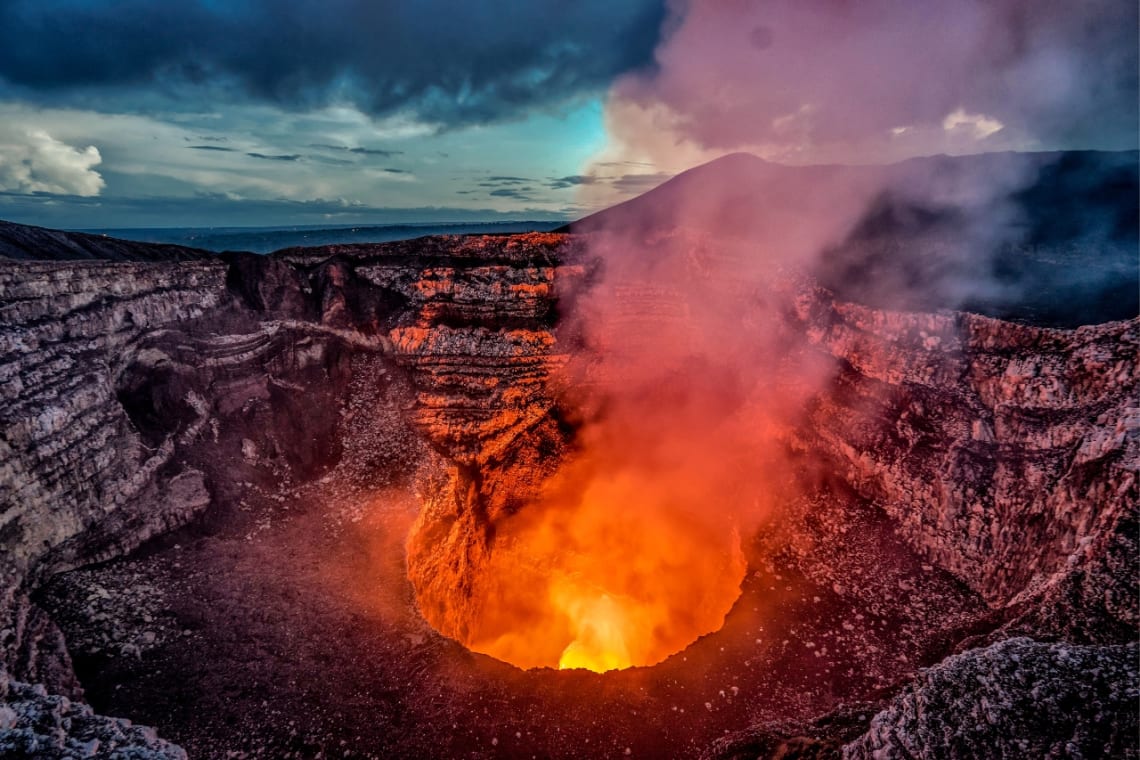
Tropical countries, such as Nicaragua, boast fantastic lush nature, but their warm climate also brings certain diseases that one must be vigilant about.
Bring along insect repellent with DEET or picaridin because mosquitoes aren’t just annoying—they're also freeloaders carrying diseases like Zika and dengue fever.
If bugs do bite or other ailments arise, knowing where healthcare facilities are located will save you precious time. While major cities boast hospitals ready to assist tourists in need—the quality varies widely as you venture into more rural areas. It doesn’t hurt to remember that you shouldn't leave home without travel insurance.
Beyond germs and jabs though lies another wellness tip—hydration. With heat often cranking high under the Nicaraguan sun, staying hydrated isn't just good advice—it's crucial. But remember: tap water isn't safe so sticking to bottled or purified water is key.
If you're wandering the streets of Managua or taking in some rays on San Juan del Sur's shoreline, having knowledge of how to receive aid during a crisis could be crucial. Here's a lifeline of info for those "just in case" moments.
For police assistance, dial 118.
If you find yourself needing medical attention, 128 is the number to call for an ambulance.
And let’s not forget about fire emergencies; reach out to firefighters by calling 115.
Sometimes what you need is a touch of home when abroad—that’s where embassies and consulates step in. If things get tricky, contact them for assistance. Diplomatic missions in Nicaragua include embassies/consulates of the US, UK, Australia, Canada and Germany in Managua.
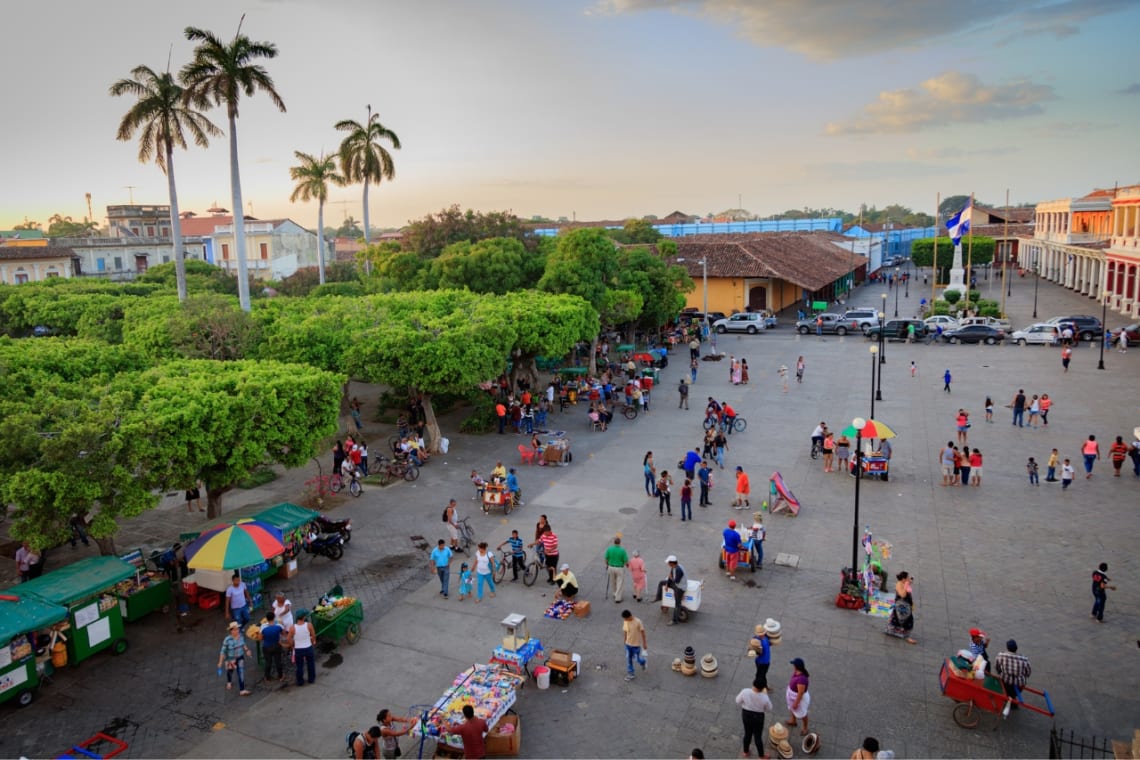
One extra tip to stay safe in Nicaragua, or anywhere else, is to travel slower, immersing yourself in local culture and meeting other travelers. That way, you'll get to understand the place a lot better and learn from other people's experiences, so it will be easier to get away from scams and potentially dangerous situations.
A great way to do that is by doing a volunteer program/work exchange. The Worldpackers' platform promotes that kind of experience, where you exchange a few hours of work a day in different local projects and receive accommodation and other perks, like meals and tours for your help.
Traveling this way, you'll have the chance to develop new skills (like learning Spanish), meet like minded people that can become your travel companions for the rest of your trip, have a closer approach to the local culture, and also have a good social impact in the countries you visit
There are many volunteering opportunities in Nicaragua, like these ones:
Get inspired by reading the experiences of fellow travelers: "Volunteer teaching in Nicaragua with a Worldpackers social impact program" and "Backpacking in Central America as a couple and doing a work exchange for the first time".
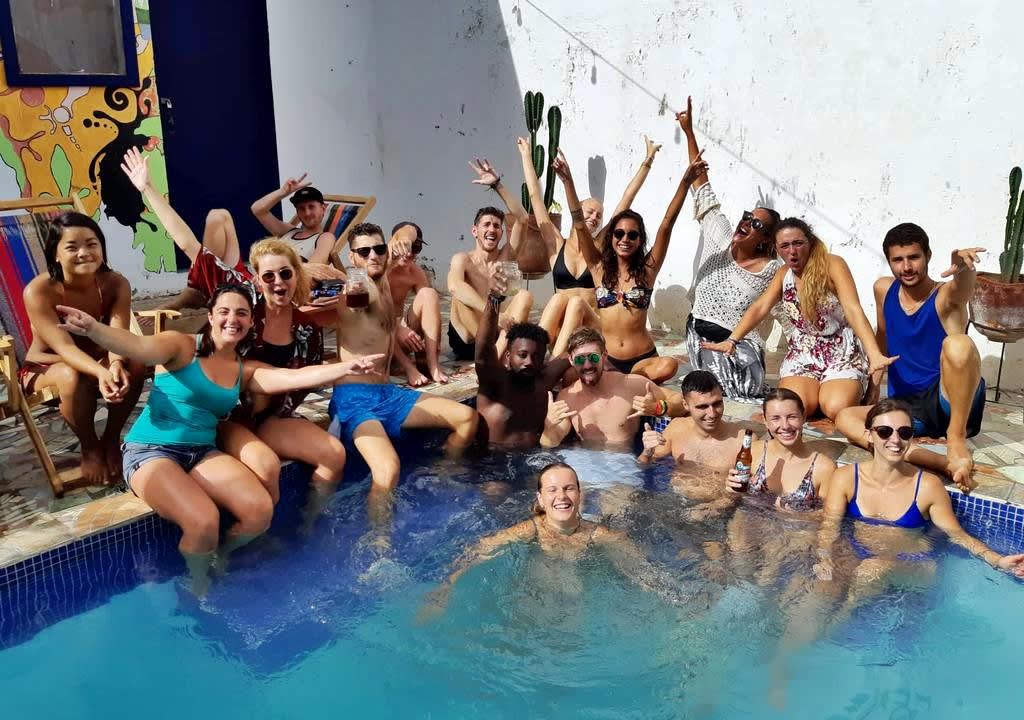
So, is Nicaragua safe? The response isn't straightforward. It's about being prepared and prudent, but not over worried.
In short: plan well, stay aware, embrace adventure cautiously and talk to the locals for the best advice. Do this and Nicaragua could be one of your best trips yet!
If you like these tips, follow Worldpackers social media to keep up with the news: we are on Instagram and Tiktok!
Write here your questions and greetings to the author